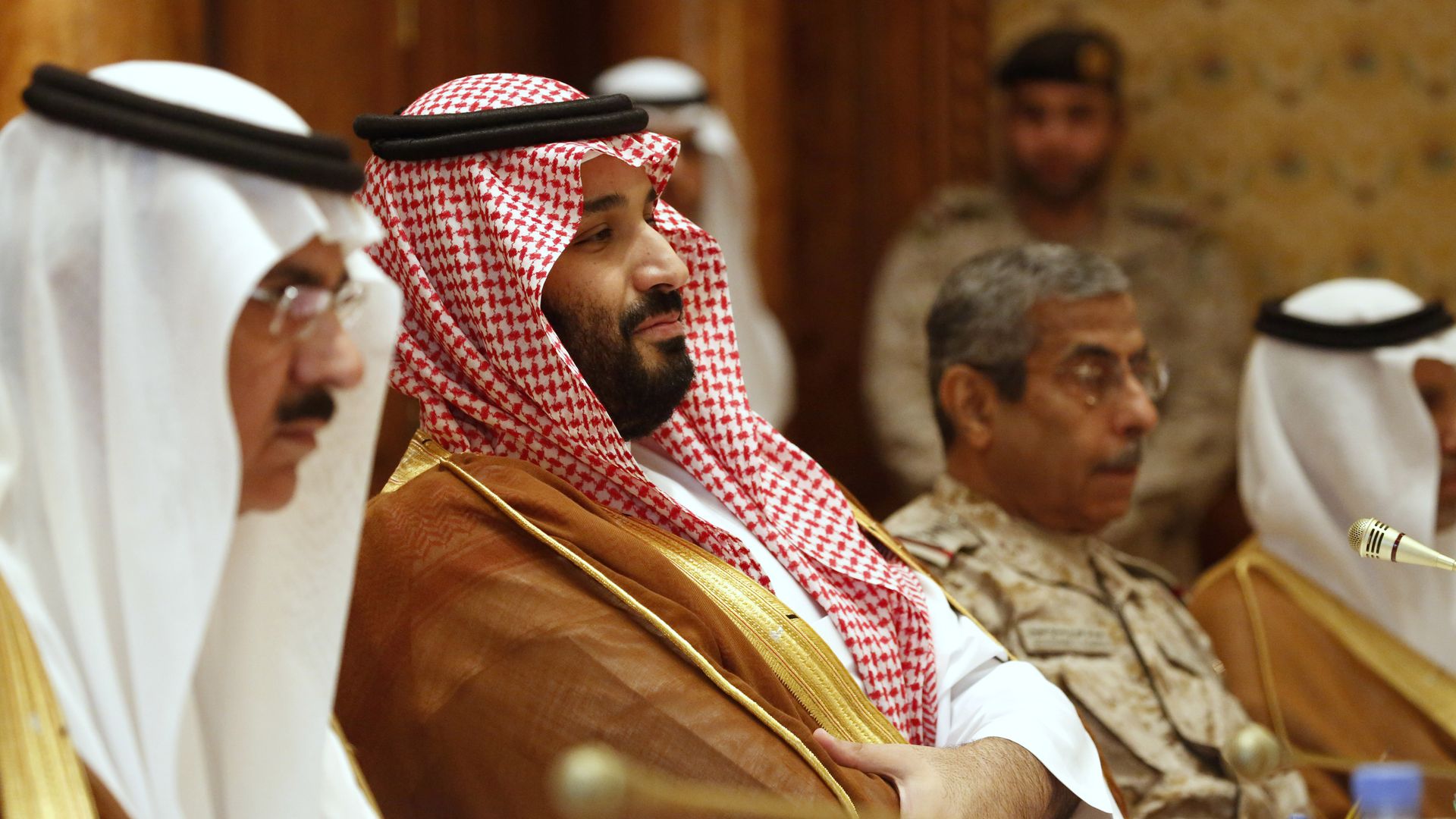Updated Mar 20, 2018 - Energy & Climate
Expert VoicesHailed for bold reforms, Saudi crown prince may still fall short
Add Axios as your preferred source to
see more of our stories on Google.

Saudi Arabia's Prince Mohammed during a meeting with U.S. Defense Secretary James Mattis on April 19, 2017, in Riyadh. Photo: Jonathan Ernst via Getty Images
